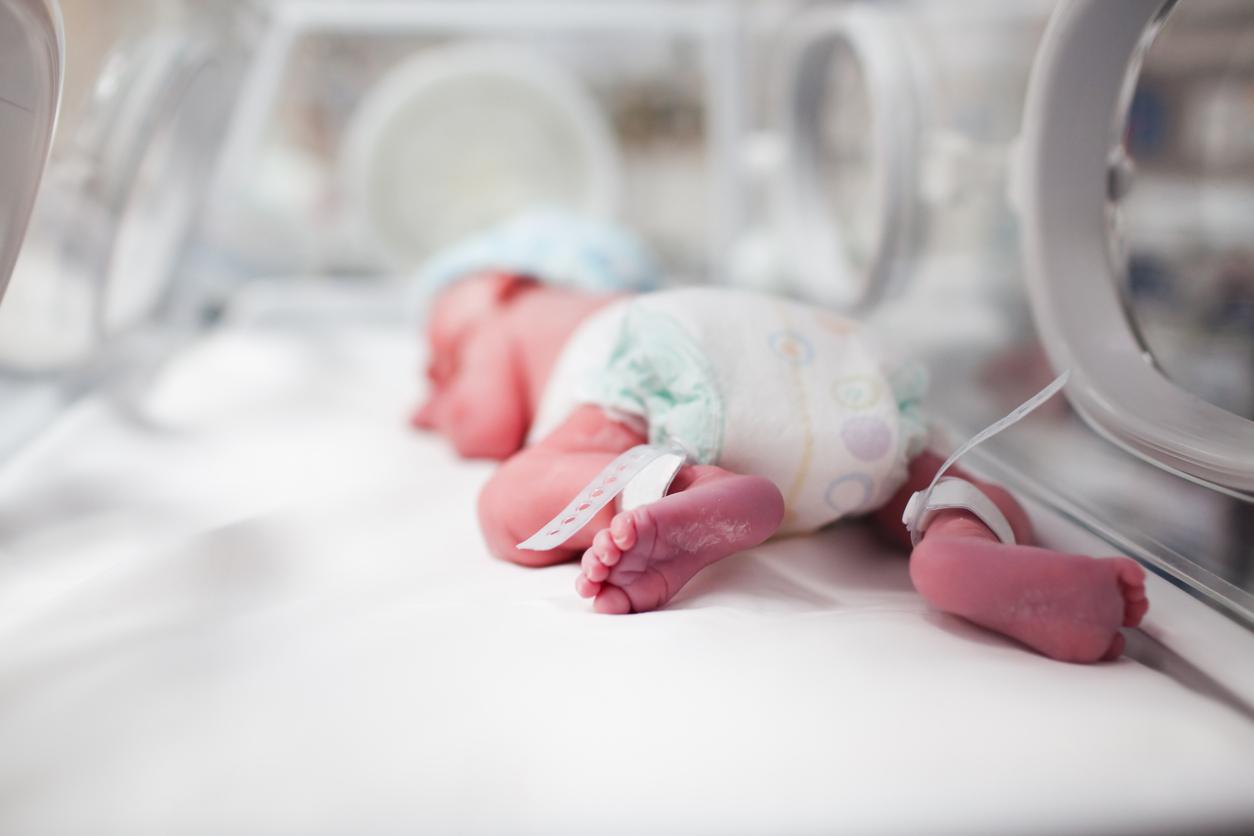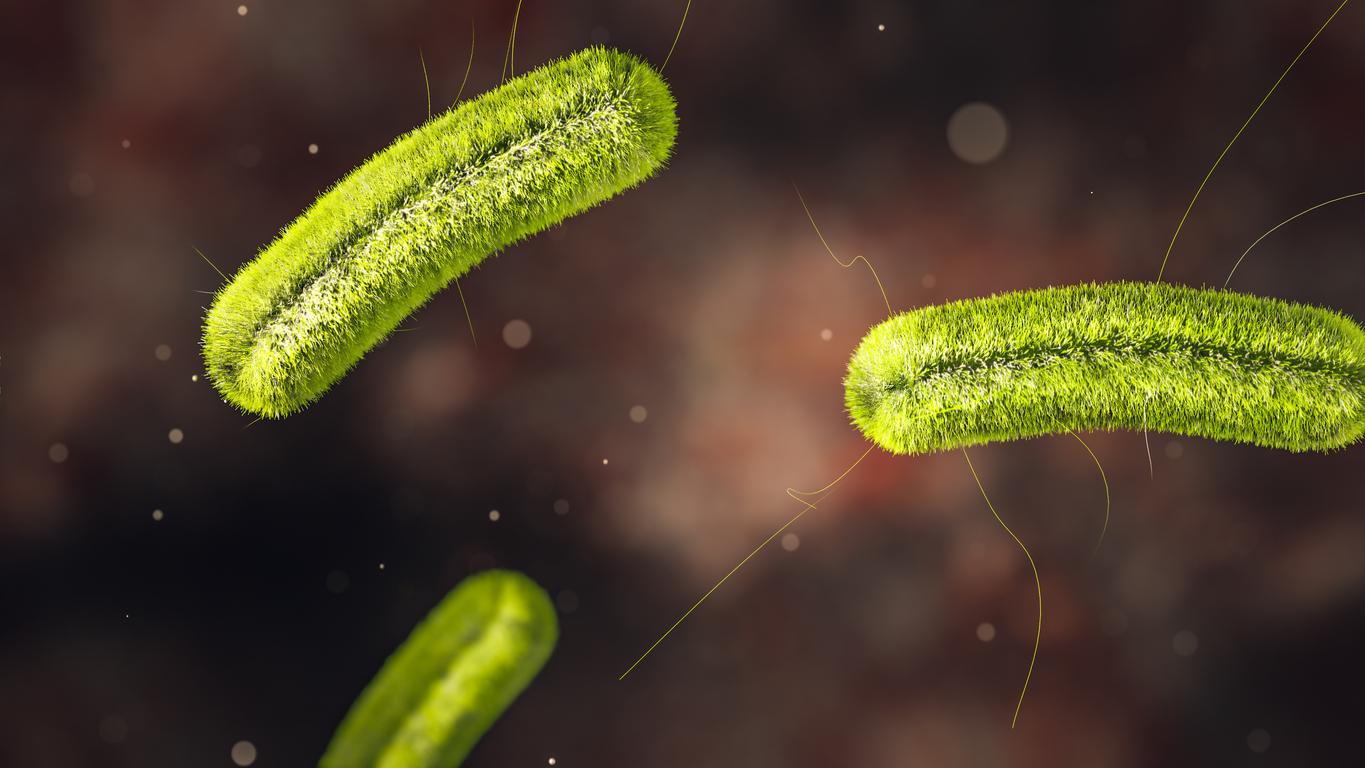Listeriosis is a bacterial infection that is foodborne. Linked to a ubiquitous germ, it can be very serious in vulnerable subjects and in pregnant women.

Listeriosis is a serious foodborne infection caused by bacteria: Listeria monocytogenes. This bacteria is most often the cause of minor digestive problems, with diarrhea, in healthy people.
However, serious forms can occur, in particular in vulnerable populations (elderly or immunocompromised), and in pregnant women where it represents a threat to the fetus or the baby.
The severe forms consist of a general infection of the blood, sepsis or an infection of the central nervous system. In pregnant women, infection of the uterus can cause miscarriage, premature delivery, or severe infection of the baby (neonatal infection).
Listeriosis is rare
In France, the disease is rare (incidence of 5 to 6 cases per million inhabitants), but is fatal in 20 to 30% of cases occurring outside pregnancy.
Each year, around 300 to 400 cases of listeriosis are recorded in France. These are cases isolated from each other (“sporadic”), no epidemic has been identified in France since 2003.
Listeriosis is an infection that can become serious in certain weakened people whose poor physical condition allows the bacteria to develop more easily: the elderly, those suffering from cancer, blood or liver disease ( cirrhosis …), insulin-dependent diabetics, transplant recipients and those with weakened immune systems (immunosuppressive therapy, autoimmune disease, HIV infection, etc.)
The bacteria are frequent and ubiquitous
Listeria monocytogenes, the bacterium responsible for listeriosis, is very widespread in the environment (it is ubiquitous) and resistant in the external environment (soil, lakes, rivers, sewage or berry water, mainly decaying vegetation, etc.).
Because of this ubiquitous nature and its resistance, this bacterium has the ability to colonize food manufacturing sites. Thus, many people ingest small amounts of Listeria monocytogenes, without any severe problem appearing apart from digestive disorders, sometimes with diarrhea.
It is also the cause of foodborne poisoning, or even epidemics in the event of the spread of contaminated food.
No change in the taste of food
The most common mode of contamination in humans is the consumption of food contaminated with Listeria monocytogenes. The bacterium does not alter the taste of food, unlike most other pathogens transmitted through food, this explains the possible repeated ingestion and in large quantities of this bacterium.
In France, the foods most frequently contaminated by this bacterium are cooked meats (tongue, head, rillettes), sausages, chilled sprouted seeds, and fresh milk products (soft cheeses and raw milk).
The bacteria are sensitive to heat, but can multiply at 4 ° C (refrigerator temperature). Food contamination is therefore encouraged by the extension of the cold chain (industrial cold stores, household refrigerators).
An infection that can be serious
The incubation period, where the bacteria develops without the infection being apparent, is from a few days to a few weeks, but it is more prolonged in maternal infections (up to 1 month) than in septicaemic forms (a few days).
In adults, the disease manifests as a serious infection of the blood (“sepsis”), or even of the central nervous system, which then manifests mainly as “meningoencephalitis” (that is, say an infection of the meninges and the brain).
In frail people, the symptoms of listeriosis can worsen and last for several weeks in the form of sepsis with meningitis, the cause of brain abscesses or local infections. Neurological sequelae can be observed and, depending on the study, the death rate directly related to the infection varies from 20 to 30%.
In pregnant women, the infection is usually harmless to the mother: it can go unnoticed, cause contractions or result in flu-like syndrome. In contrast, the bacteria can cross the placenta and infect the newborn to cause a severe infection, often worsened by prematurity, with sepsis, infection of the lungs, neurological infection and sometimes also of the skin. This infection can lead to intrauterine death, abortion, or premature birth.
Early antibiotic treatment is necessary
There is an antibiotic treatment, all the more effective when it is administered quickly. However, the course can be fatal even with appropriate and early treatment.
Listeriosis is diagnosed by a bacteriological test which confirms the presence of Listeria monocytogenes in the blood, the placenta, the cerebrospinal fluid or, more rarely, in another type of sample (ascites fluid, joint puncture or perinatal sample). Hospitalization is then required almost systematically.
The treatment is based on high doses of antibiotics, combining in the initial phase, and in the absence of allergy, amoxicillin and an aminoglycoside (usually gentamicin) in adults and newborns. These treatments are administered intravenously.
Amoxicillin will be continued for three to four weeks. The same goes for a pregnant woman with flu-like illness, whether listeriosis is diagnosed or just suspected.
How to avoid getting infected
Prevention for people at risk (pregnant women, the elderly, immunocompromised people, by immunosuppressive treatment or by a pathology such as cancer, cirrhosis, diabetes, etc.) consists in avoiding the consumption of processed meats. jelly, rillettes, pâtés, foie gras, raw milk cheeses, soft cheeses, smoked fish, raw shellfish, surimi, tarama, raw sprouted seeds … It is recommended to cook food of animal origin well, to remove the rind of the cheeses, carefully wash the vegetables and aromatic herbs and thoroughly anneal the products purchased ready to eat “caterer” until boiling.
In order to avoid cross-contamination (from one food to another), raw foods must be kept separate from foods cooked or to be eaten as they are. Pre-packaged products are to be preferred to products purchased by the cut, the latter must in all cases be consumed quickly after purchase. The usual rules of hygiene must be particularly observed:
• For foods that must be kept cold, the refrigerator should be set to + 4 ° C at most.
• Whenever food has soiled surfaces, clean them up promptly.
• Do not put unpackaged food directly on the shelves.
• Respect hygiene: clean utensils and work surfaces before and after use and wash hands after handling raw products.
• Wash vegetables and herbs well before eating or cooking them.
• Store leftovers in the refrigerator for less than 3 days, and in the case of hot foods, reheat them to an internal temperature above +70 ° C.
• Respect the use-by dates (DLC) for packaged foods and, in the case of cut products, consume them as quickly as possible.
For pregnant women and those most at risk, it is recommended to avoid foods that may be contaminated with Listeria monocytogenes such as raw milk cheeses (especially soft cheeses), the rind of cheeses in general, smoked fish, raw shellfish, tarama and cold cuts.
.
















